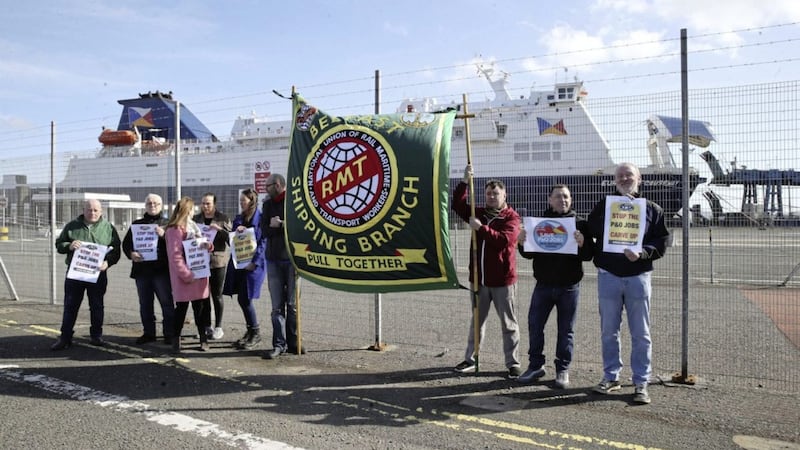There is no direct causal link between Brexit and the sacking of 800 P&O workers.
Employment law differs around Europe, even within the EU, with further loopholes for seafarers - assuming P&O’s actions were legal.
EU law did not prevent Irish Ferries sacking 600 staff in similar fashion in 2005, allowing it to undercut P&O on Irish Sea and English Channel routes. P&O could now undercut Stena Line on the North Channel.
There is a Brexit connection to this ominous future. Larne Harbour is owned by P&O Ferries, owned in turn by Dubai-based DP World, the Conservative’s favoured investor in post-Brexit ‘freeports’.
The DUP wants Larne to be Northern Ireland’s freeport, although freeports merely displace business from elsewhere. The job security we have just witnessed at sea could spread onto land.
Stormont is uniquely placed to prevent that type of future, again with a Brexit twist. We are the only part of the UK where employment law is devolved. While the protocol does not require shadowing EU employment law, it does contain broader protections that would make divergence controversial. Having never made an impact on our politics, this issue is about to rise up the agenda. Gordon Lyons, the DUP economy minister, has already told the assembly the P&O case concerns Stormont due to its employment law powers.
Northern Ireland might have been expected to develop its own view on employment law from the outset of devolution. The trade union movement is organised on an all-Ireland basis and Stormont had a department custom-made for the subject, the Department for Employment and Learning, until 2016. It had SDLP ministers for its first three years and an Alliance minister for its final five.
The Republic’s ‘social partnership’ agreements from 1987 to 2009 provided a model of government, employers and unions working together. This was considered crucial in creating the Celtic tiger, yet its existence barely registered north of the border.
After the financial crash caused social partnership to collapse, much criticism of it seemed vindicated. Because so many businesses depend on government and so many unions depend on the public sector, social partnership became a conspiracy against the taxpayer. It would presumably have been even more unbalanced here, given our larger public sector.
However, what is mainly blocking our own view on employment law is the ghost of British labour relations in the 1970s and 1980s. This was beautifully illustrated by a private member’s bill this month from People Before Profit’s Gerry Carroll, aimed at relaxing the law on unions rather than specifically tightening the law on jobs.
The Trade Union Freedom Bill, based on legislation proposed by unions in Britain, was introduced by Carroll with repeated references to Margaret Thatcher. The DUP’s Peter Weir replied there was “a touch of Scargillism about the bill”.
Other DUP and Alliance members were concerned the bill’s decriminalisation of secondary strikes would take us “back to the 1970s”, although Carroll claimed it was about tackling modern forms of outsourced employment.
I will confess to my own bourgeois time-warp terror. When the RMT union called for P&O Ferries to be nationalised, I remembered how vulnerable Sealink was to strikes, causing empty shelves in my parents’ shop.
Moving past this history to stronger job protection means having unions trusted not to engage in ‘Scargillism’. Most public and private organisations - large ones, anyway - would welcome unions they could work with. Most are still waiting, a third of a century after Thatcher left office.
The RMT is an unreconstructed and clearly ineffective example. A 2016 employment tribunal found Northern Ireland’s largest union, Nipsa, has two endlessly feuding factions at head office: the Trotskyites and the Marxist-Leninists. Other unions here are as absurd.
There is a chicken and egg problem in developing unions worth taking seriously. Workers would need to take them seriously first, by paying attention to union politics and electing moderate leaderships. Carroll’s bill included a provision for electronic balloting that might ease that objective, even if that was not its intention.
Mainstream political parties here might consider running or endorsing candidates in union leadership contests. There is a commendable determination to keep unions impartial in Northern Ireland terms but that has just left the field open to tiny far-left parties with no such qualms.
The SDLP and Sinn Féin backed Carroll’s bill, noting that while it was flawed and introduced too close to the election to become law, it could start a debate afterwards. Stormont may get a move on, before the ship has sailed.









